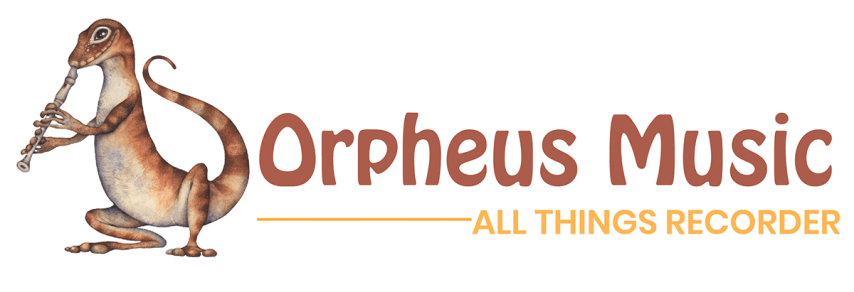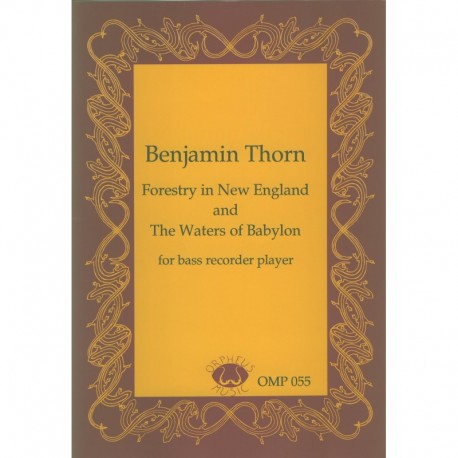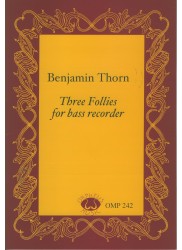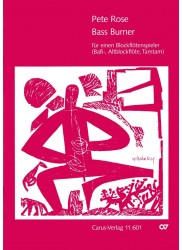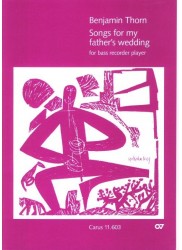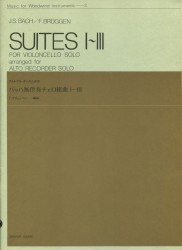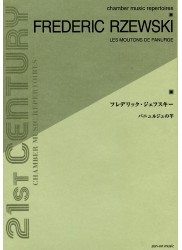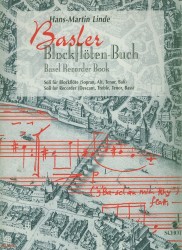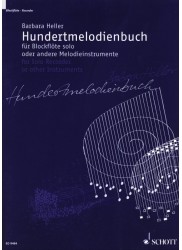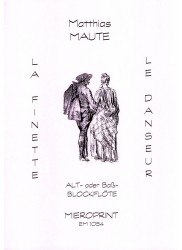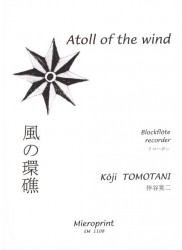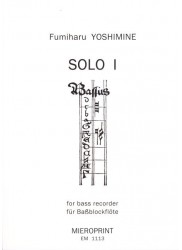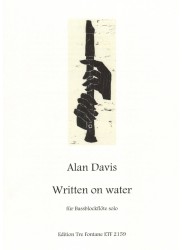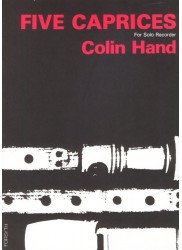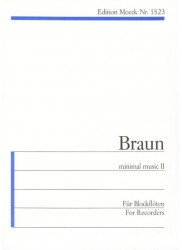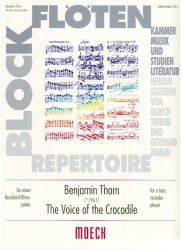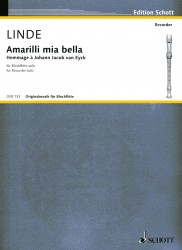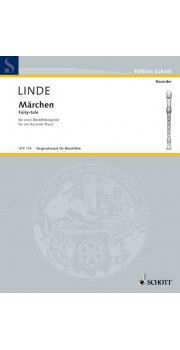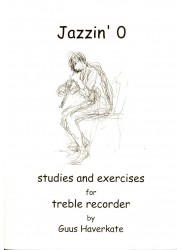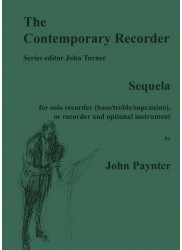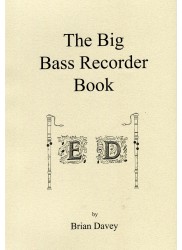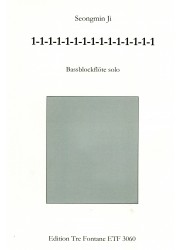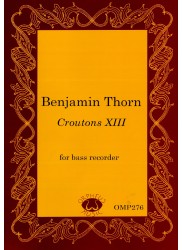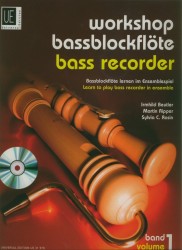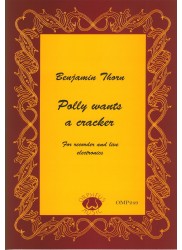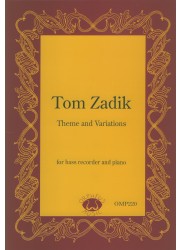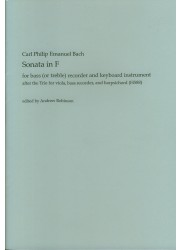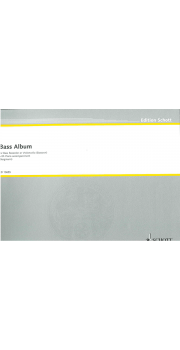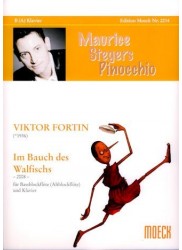No products
Prices are tax included
Forestry New England, The Waters of Babylon
Composer: Thorn - Benjamin
Instrumentation: Bass
Period/genre: Australian Contemporary
Grade: Difficult
More info
*Contemporary Pieces.* A boisterous and attractive piece in three movements that uses multiphonics and voice and a haunting melodic piece.
*Forestry New England*
1. Freely
2. Fast and rhythmic
3. Livley
4. The Waters of Babylon
_Trinity London 2017-2020 Treble Recorder Syllabus Grade 6 Group B_
_Part 7 pp._
OMP055 Benjamin Thorn, Forestry in New England and The Waters of Babylon
Benjamin Thorn has been rushing into print with startling frequency in the last few years, and has adopted the bass recorder as something of a pet instrument. These two pieces are interesting and accessible works for unaccompanied bass and add considerably to the limited repertoire of playable solo works for it.
Forestry in New England is undoubtedly the more interesting of the two; a quite substantial work in three movements, covering the entire range of the bass recorder and making considerable use of the extreme high register. This is one of the areas that may provide difficulty for the average bass instrument, too many of which suffer from weak top e and f, both of which this work requires regularly.
The first movement, marked "Freely", is an elegiac roam from the lowest to the highest registers, with much use of paired semiquavers, and gives scope for the creation of some lengthy shapes and lines. The second movement, "Fast and Rhythmic", is a jaunty thing in 7/8. This reviewer feels that the notation of multiphonics, using a diamond notehead with a harmonic symbol, is un-necessarily unclear; the harmonic symbol is not needed at all, a different notehead sufficing. That said, the multiphonics employed are exclusively based on an existing note with one ort two extra fingers added. This is straightforward and clear and creates an environment wherein multiphonics are used more as an extension of the instrumental timbre than as a harmonic or 'avant garde" feature. The final movement, "Lively", makes use of Thorn's other pet compositional feature; vocalisation while playing. This is a feature that commends this music more to male players than to female, as Thorn suggests that the "voice part should be a throaty grunt except where it is independent of the recorder part." Both parts are notated in the bass clef throughout. This movement is the weakest of the three, the melodic material being somewhat forced in its liveliness, and the triadic harmonic progressions implied but the figuration being, in many cases, rather uncomfortable.
The Waters of Babylon is added to this publication as something of an afterthought. It is a short, 35 bar, completely conventional melodic piece marked "Cantabile" and making no special demands on the player other than the regular use of the high register of the bass recorder. However, there is a simplicity of melodic line here that suggests careful craftsmanship and an intimate knowledge of what is effective on the bass instrument. It is easy to imagine this piece played as an "unexpected" encore to a virtuoso recital, and it would be captivating.
Peter Wells, The Recorder Magazine, Winter 2001
OMP072 Benjamin Thorn, Misery surrounds me.
OMP055 Benjamin Thorn, Forestry in New England and The Waters of Babylon
Benjamin Thorn's early bass recorder works, The Voice of the Crocodile and Pipistrelli Gialli established him as an Australian enfant terrible and may even have secured his place in the modern history of the recorder. These recent bass recorder compositions by Thorn are of a much lighter character.
Misery surrounds me subtitled "instrumental versions of a 15th-century popular song arranged for bass recorder," is based on a song called "Elend, du hast umfangen mich". It is essentially a division piece in which Thorn employs a simple tonal language with a modern tongue-in-cheek sensibility. It is not easy to parody something that is formulaic and predictable but Thorn manages it well with great subtlety.
Forestry in New England is also a parody. This is at least evident in the free recitativo-like opening movement. The second movement, in a fast 7/8 meter has a dynamism reminiscent of Thorn's earlier work. It is most humorous in its raucous use of multi-phonics as a distorting device. In the third movement, Thorn employs silly, old-fashioned melodic clichés from the ragtime era which he makes even more comical by having the player sing them into the recorder whenever they appear.
The Waters of Babylon, included in the edition with Forestry, expresses parody by combining simple melodic phrases that would generally be idiomatic to folk songs, with an ongoing through-compositional form. Also a bit unusual is the frequent shifting between Dorian and Locrian modalities which strikes the ear as a kind of wrong-note version of the melodic minor.
The editions are excellent and contain no bad page turns. Ample instructions for the second movement of Forestry (the only place where special effects are required) are supplied. Upper intermediate players could handle these pieces.
Pete Rose, American Recorder, March 2004
30 other products in the same category:
Reference: OMP242.pdf
Brand: Orpheus Music
Three Follies for Bass Recorder
PLEASE NOTE - DOWNLOADABLE PDF VERSION Composer: Thorn - Benjamin...
$14.50 -20%In StockReference: 11.601
Brand: Carus
Bass Burner for one recorder player
Composer: Rose - Pete Instrumentation: Bass + Voice Period/genre:...
In StockReference: 11603
Brand: Carus
Songs for my father's wedding
Composer: Thorn - BenjaminInstrumentation: BassPeriod/genre: Australian...
In StockReference: 509010
Brand: Zen-on
Cello Suites 1 to 3 arranged for Alto Recorder Solo
Composer: Bach - Johann Sebastian Arranger: F Bruggen Instrumentation:...
In StockReference: 590212
Les Moutons de Panurge
Composer: RzewskiInstrumentation: Descant/Treble/Tenor/BassPeriod/genre: 20th...
In StockReference: M202517468
Brand: Boosey & Hawkes
Chinesische Bilder (Chinese Pictures)
Composer: Yun - Isang Instrumentation: Tenor (Solo) - Bass - Descant -...
Out of stockReference: ED8250
Brand: Schott
Basel Recorder Book
Composer: Linde - Hans-Martin Instrumentation: Descant/Treble/Tenor/Bass...
In StockReference: ED9484
Brand: Schott
Hundertmelodienbuch
Composer: Heller - Barbara Instrumentation: Descant/Treble/Tenor/Bass...
In StockReference: EM1054
Brand: Mieroprint
La Finette et Le Danseur
Composer: Maute - MatthiasInstrumentation: Treble - BassPeriod/genre:...
Out of stockReference: EM1108
Brand: Mieroprint
Atoll of the wind
Composer: Tomotani - Koji Instrumentation: Treble/Bass Period/genre:...
In StockReference: EM1113
Brand: Mieroprint
Solo I
Composer: Yoshimine - Fumiharu Instrumentation: Bass Period/genre:...
Out of stockReference: ETF2159
Brand: Edition Tre Fontane
Written on water
Composer: Davis - Alan Instrumentation: Bass Period/genre: Contemporary...
In StockReference: FHC70
Brand: Forsyth
Five Caprices
Composer: Hand - Colin Instrumentation: Sopranino/Descant/Treble/Tenor/Bass...
In StockReference: M1523
Brand: Moeck
minimal music II
Composer: Braun - GerhardInstrumentation:...
In StockReference: M2561
Brand: Moeck
The Voice of the Crocodile
Composer: Thorn - Benjamin Instrumentation: Bass + Voice Period/genre:...
In StockReference: OFB133
Brand: Schott
Amarilli Mia Bella Hommage a Johann Jacob van Eyck
Composer: Linde - Hans-MartinInstrumentation: Descant - Treble -...
In StockReference: P403
Brand: Peacock Press
Jazzin' O Studies and Exercises
Composer: Haverkate - Guus Instrumentation: Treble - Bass Period/genre:...
In StockReference: PJT056
Brand: Peacock Press
Sequela
Composer: Paynter - JohnInstrumentation: Sopranino/Treble/BassPeriod/genre:...
In StockReference: DMP105
Brand: Peacock Press
The Big Bass Recorder Book
Composer: Various Arranger: Brian Davey Instrumentation: Bass Grade: Easy...
Out of stockReference: ETF3060
Brand: Edition Tre Fontane
1-1-1-1-1-1-1-1-1-1-1-1-1-1-1-1
Composer: Ji - Seongmin Instrumentation: Bass Period/genre: Contemporary...
In StockReference: OMP276
Brand: Orpheus Music
Croutons XIII
Composer: Thorn - Benjamin Instrumentation: Bass Period/genre: Australian...
In StockReference: OMP276.pdf
Brand: Orpheus Music
Croutons XIII
PLEASE NOTE - DOWNLOADABLE PDF VERSION Composer: Thorn - Benjamin...
$13.00 -20%In StockReference: UE31970
Brand: Universal
Workshop Bass Recorder, Vol 1 +CD
Composer: Beutler/Ripper/Rosin Instrumentation: Bass Grade: Easy
In StockReference: OMP249
Brand: Orpheus Music
Polly wants a cracker
Composer: Thorn - Benjamin Instrumentation: Recorders + Live Electronics...
In StockReference: OMP220
Brand: Orpheus Music
Theme & Variations
Composer: Zadik - Tom Instrumentation: Bass + Piano Period/genre:...
In StockReference: PAR310
Brand: Peacock Press
Sonata in F
Composer: Bach - Carl Philip Emanuel Arranger: Andrew Robinson...
In StockReference: ED10655
Brand: Schott
Bass Recorder Album
Composer: Various Arranger: Walter Bergmann Instrumentation: Bass + Piano...
In StockReference: M2214
Brand: Moeck
Im Bauch des Walfischs, In the Stomach of the Whale
Composer: Fortin - Viktor Instrumentation: Bass + Piano Period/genre:...
In Stock
